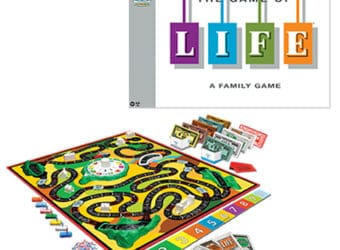5 Easy Ways to Teach Kids How to Start Saving Money
Nurturing Financial Responsibility 5 Easy Ways to Teach Kids Money Saving Habits
Disclosure: This blog post was written for The Momiverse, pursuant to their engagement by brightpeak financial. All views expressed are entirely my own, and were not influenced or directed by either the Momiverse or brightpeak financial.

money savings
With Halloween, Thanksgiving and Christmas right around the corner, the season of spending is upon us. Between costumes, candy, huge family meals and presents, this time of year hits the wallet hard. Saving for other life necessities and emergencies can become a difficult task during this time of year and can put a real strain on money saving efforts.
Having a nest egg set back is great way to secure financial stability in the face of life’s unexpected expenses. Due to budgets, limited income and monthly monetary responsibilities, building a savings can sometimes become a difficult task.
This is where brightpeak financial can help.
brightpeak financial brings you easy, understandable tips, tools, and solutions, that can help you start thinking about money, no matter what stage you’re at.
ABOUT BRIGHTPEAK FINANCIAL
brightpeak financial is a new division of Thrivent Financial, a faith-based, not-for-profit founded over 100 years ago. Their aim is to help families and communities thrive and become more resilient. They want to help people make the most of their money and prepare themselves for all of life's unexpected events.
Get back on track, breathe new life into your savings account and ease into a money saving mindset by using these simple tips to get started. I do these with my children.
5 EASY WAYS TO START SAVING MONEY
1. Start small with small change.
Instead of using the change in your pocket or wallet, set it aside for saving. Once you start thinking of the nickels and dimes as non spendable, you'll start a habit. Sooner or later all that coinage adds up; And all with minimal effort. When you have saved up a substantial amount, put into your savings account instead of your wallet.
I have my children go around the house looking for change at least once a week. Since my husband always leaves change in his pockets, I get help doing the laundry while the kids find a little money that they can save.
*TIP: While coin counting services like Coin star are alluring, it's best to turn change into your bank. Coin counting machines usually charge a percentage fee and since most are located inside of stores, this increases the possibly of spending your money. Most banks will count customer coinage for free and you'll be less likely to spend your money if you put it directly into the bank.
2. Utilize services offered by your bank and employer.
Most paychecks have a direct deposit option and even allow you specify how much goes into which accounts. Instead of choosing to deposit the entire paycheck into the checking account, elect to deposit a small percentage each payday into the savings account. Then, leave the money there to accumulate. If the money is out of sight, it is most likely out of mind as well. Treat this money as though it doesn't exist to avoid wasteful spending.
The way that I adapt this with my children is by offering to place part of their allowance in a savings account and they love it. They save half of their allowances every single week. 5 Ways to start saving money
3. Give your savings meaning.
Whether it's for a new pair of shoes, a new car or just for emergencies, define the purpose for the money you are working hard to keep. Creating this definition will give your efforts a greater sense of urgency and importance and might give you more resolve to keep to your goal.
Each of my children has a savings goal in mind. One child is saving for a new mountain bike, another child is saving for a dollhouse and the oldest child is saving for the farm he wants to buy someday.
4. Set saving goals for yourself.
Start small in the double digits ($20 to $50 or an amount your budget can handle) and work towards meeting that task with deadlines and a realistic plan of how to save money to accomplish this. Once you reach your starter goal, set another goal at a higher mark. Rinse, repeat and enjoy the benefits of keeping more of your money and being prepared for unexpected financial needs.
We do this with our children as well. Each child has an amount of money that they want to save. As they reach their goals, they can then purchase what they planned to purchase or change their goals. 5 Ways to start saving money
5. Create a 24 hour rule and evaluate each purchase.
Before you buy anything, wait. Instead of completing the transaction immediately, (especially with online purchases, since there can be very impulsive) step back and wait 24 hours before buying. This time allows you to really decide if it's something you need or want. By cutting out the “want” spending, you can effectively increase the amount of money you are able to save.
This tip alone has saved everyone in my family money. We never make large or small impulse purchases anymore without waiting at least 24 hours and when they 24 hours is up, most of the time we don't buy the item.
GET SOCIAL WITH brightpeak financial
Tweet with brightpeak financial on Twitter
Like brightpeak financial on Facebook
Visit brightpeak financial on LinkedIn
See what brightpeak financial is pinning on Pinterest
Talking about money is not always comfortable to do but with brightpeak financial, there are simple solutions that you can both understand and afford. Now is the time for you to take action and become financially secure. What are you waiting for?

To learn more about the resources available from brightpeak financial, visit brightpeakfinancial.com or find them on Twitter or Facebook.







I have a very large bank that I put all my change in every day. It dissapears and I don’t think about it. It’s great the way you’re teaching your kids.
I like the whole “24 hour Rule” I think this would definitely helps those who are impulsive buyers.
Also I totally agree instead of using CoinStar go to bank. One time I was so Desperate to turn in my change and when change was totaled it was close to 350. I ended up paying about $38 in fees I regretted it when I saw how much it deducted from my coin savings but it was too late to turn back.
The fees just kill me for those, Daphne! Although I do like when they run the promotion to get the exact amount that you turned in into an Amazon gift card.
When we do have to roll, I have my kids do it. Each one is in charge of a coin. My son gets all of the quarters, my daughter gets all of the the nickels and our youngest gets the dimes. Watching them do this is actually quite comical. LOL.
I love the 24 hour rule. I’ve also learned that “online retail therapy,” where I just add things I think I “need” into my cart works. I hardly ever go back and buy them, but the thought that they are in my cart seems to release the same sort of feelings of accomplishment and excitement as actually buying something. My colleague Sara wrote some more great tips like these on her post: “3 Reasons Why Retail Therapy Works.”
Check it out here:
~Kayla
Thanks Kayla!
There is also an interesting tips on adding things to your online shopping cart. Sometimes you can actually save more money that way because businesses will email you a few days later with a decent coupon off for savings. But that is an entirely different article. LOL 🙂
Pingback: 4 Ways to Teach Financial Literacy to Your Teens Divine Lifestyle